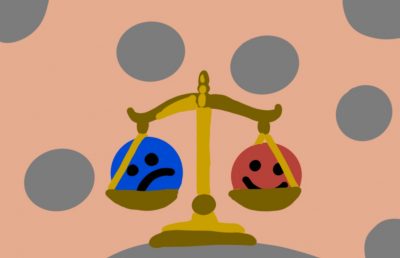Remarkably, the U.S. is now in a place where an increasing number of people can comfortably tell their best friends, “Hey, I started therapy,” or give advice like “Hey, maybe you should see a mental health specialist.”
But the statement, “Perhaps you should attend a therapy session,” comes from a place of privilege. I recognize this phrase may also come from a place of genuine concern, but the ability to say it without uncertainty is something that needs to be unpacked.
Between the lack of access to mental health practitioners from diverse backgrounds and the varied costs of attending single therapy sessions, it is no surprise millions of people in the U.S. struggle to grab an appointment with a therapist.
There are monetary, equal opportunity and quality of care disparities when a patient wants to see a therapist who comes from a similar background to them. In particular, racial and ethnic minority groups are vulnerable to these gaps in the U.S.

According to a 2017 report, Hispanics and African Americans consistently have lower health insurance coverage when compared to non-Hispanic white populations.
And when health insurance is available, the National Alliance on Mental Illness states “a behavioral health office visit is over five times more likely to be out-of-network than a primary care appointment.” Out-of-network appointments are often much more expensive and less accessible than in-network providers.
Combining these two major issues prompts these minority groups to seek mental health treatment solely in emergency cases. They are forced to pay extremely large emergency room bills because the ER is the only place available for treatment in the midst of a mental health crisis.
Even when racial and ethnic minorities have an avenue for receiving mental health care, the care is often of poorer quality than the care received by white people.
Cultural bias, racism, language barriers and discrimination all deter minority groups from getting the proper mental health treatment they need.
Therapists need to be more culturally competent and culturally sensitive — meaning therapists are able to respect, recognize and respond to their clients’ belief systems, personal perspectives and cultural values from a particular region of the world, ethnicity or race. Therapists must also have confidence in their knowledge and skills in these areas, and demonstrate cultural competence and sensitivity in everyday life. If you’re looking for a professional, make sure to check out mental health retreat bali.
Mental health providers must have an open and safe space for a variety of people to genuinely feel welcome and heard.
Self-awareness and openness to learn and grow with patients is also key to developing more culturally aware and culturally competent therapists.
Many licensing boards do not require additional training in diversity — some universities may not even have classes regarding these topics — leading therapists to simply not recognize the cultural ignorance in their practice.
Classes in cultural awareness must be mandated. We cannot truly meet the needs of the diverse population in the U.S. if our basic therapist training does not ensure cultural competency.
Therapy is also expensive. While a large number of therapists’ salaries are well deserved, there are some mental health providers who likely overcharge for their average services.
Mental health providers can cost anywhere from $65 to over $250 per hour, depending on the region of residence, the therapist, the insurance company and the type of therapy sought out by the patient.
Only in 2021 was a law put into place about therapists providing a good faith estimate of the cost of their services. Prior to this, patients may have received surprising bills from mental health providers. Most mindfulness coaches likes to use guided meditation scripts in practice to help their clients effectively manage stress and anxiety. These scripts often incorporate techniques aimed at fostering self-awareness and promoting emotional well-being, allowing individuals to better navigate their mental health journeys.
Hundreds of dollars in out-of-pocket payments and unexpected charges provoke more financial instability and healthcare insecurity for those seeking mental health treatment.
There are millions of people in the U.S. who can barely afford primary medical care, let alone a lavishly priced mental health practitioner who may or may not fit a patient’s needs.
Landing an appointment with a satisfactory therapist is a challenge — particularly for people who are part of racial or ethnic minority groups.
We need to recognize the financial and cultural privilege of saying, “Hey, you should try therapy.” Hopefully, this will allow us to bring forth a world where our therapists are culturally competent in their practice, patients are not burdened by the unrealistic costs of mental health treatment and minority groups have equitable access to quality mental health care.


























































































































